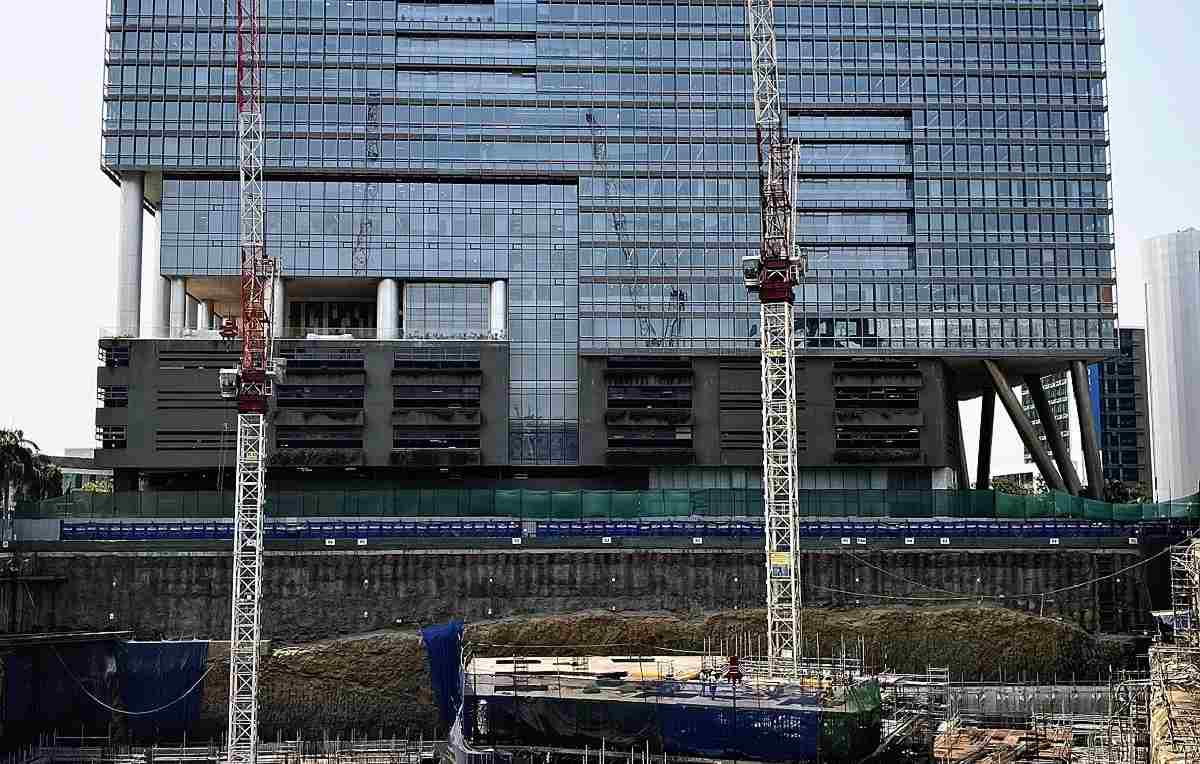Major Japanese Real Estate Companies Broaden Presence in Asia; Technologies to Tackle Environmental Issues Attracting Interest

An office building is being constructing by Sumitomo Realty and Development Co. in Mumbai, western India.
12:48 JST, July 21, 2024
BANGKOK — Major Japanese real estate companies are broadening their presence in other Asian countries amid rising demand for high-quality office and residential buildings, and as emerging economies such as India’s see an uptick in corporate activity and income levels.
Sumitomo Realty and Development Co. is involved in three large-scale projects in Mumbai — a commercial hub home to many financial institutions. Sumitomo places Mumbai after central Tokyo as its “second engine” driving the company’s growth, and plans to invest a total of ¥700 billion in the city.
In October 2023, Sumitomo acquired a roughly 80,000-square-meter plot of land in Mumbai’s new urban center to develop a large complex comprised of business and commercial facilities. The company also plans to construct office buildings at two other locations within the city.
“We have received inquiries from prospective tenants, including major companies in India and Western financial institutions,” said Hironori Kawahara, managing director at the company’s Indian subsidiary.
Other Japanese real estate companies are developing facilities in southern Indian cities. Mitsui Fudosan Co. is constructing an office building in Bengaluru, and Mitsubishi Estate Co. is involved in a project to develop a business park in Chennai.
As of the end of March, the average annual rent of an office in Mumbai was $421 (¥66,000) per square meter, surpassing that of Osaka at $371, according to a survey on rents in major cities in the Asia-Pacific region conducted by Jones Lang LaSalle IP, Inc. (JLL), a major company that offers real estate services.
Demand for office space is expected to increase in Indian cities, as foreign companies are increasing their presence there.
Some developers are involved in residential projects. Tokyu Corp., for instance, is developing condominiums, commercial facilities and other buildings in a new 10-square-kilometer city in Binh Duong Province in southern Vietnam.
Nomura Real Estate Development Co. is involved in 26 projects, including the construction of condominiums, mainly in Bangkok.
According to JLL, global real estate investment fell 6% year-on-year over the January-March period in 2024. Rising interest rates, which slowed down investments in the West, were the main cause of the decline. On the other hand, real estate investment increased 13% in the Asia-Pacific region over the same period.
However, rapid urbanization has caused serious environmental problems in emerging economies. Amid the growing global trend towards decarbonization, technologies developed by Japanese companies, such as those that cut down on the energy that buildings use, are attracting a high level of interest.
Top Articles in Business
-

Prudential Life Insurance Plans to Fully Compensate for Damages Caused by Fraudulent Actions Without Waiting for Third-Party Committee Review
-

Narita Airport, Startup in Japan Demonstrate Machine to Compress Clothes for Tourists to Prevent People from Abandoning Suitcases
-

Japan, U.S. Name 3 Inaugural Investment Projects; Reached Agreement After Considerable Difficulty
-

Toyota Motor Group Firm to Sell Clean Energy Greenhouses for Strawberries
-

SoftBank Launches AI Service for Call Centers That Converts Harsh Customer Voices into Softer Voices
JN ACCESS RANKING
-

Japan PM Takaichi’s Cabinet Resigns en Masse
-

Japan Institute to Use Domestic Commercial Optical Lattice Clock to Set Japan Standard Time
-

Israeli Ambassador to Japan Speaks about Japan’s Role in the Reconstruction of Gaza
-

Man Infected with Measles Reportedly Dined at Restaurant in Tokyo Station
-

Videos Plagiarized, Reposted with False Subtitles Claiming ‘Ryukyu Belongs to China’; Anti-China False Information Also Posted in Japan





















